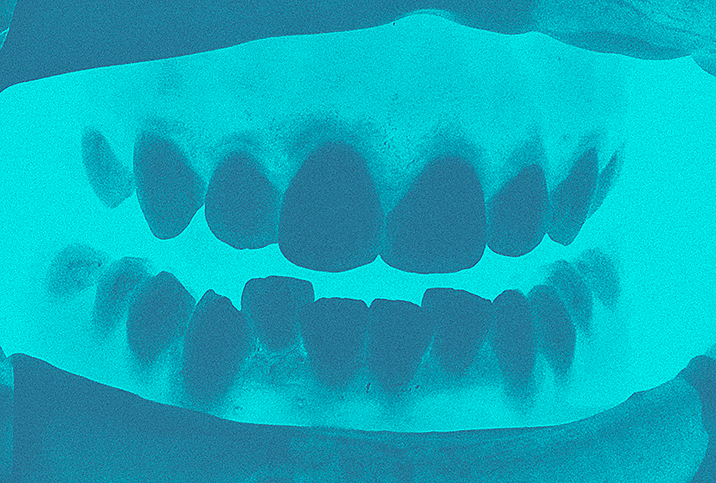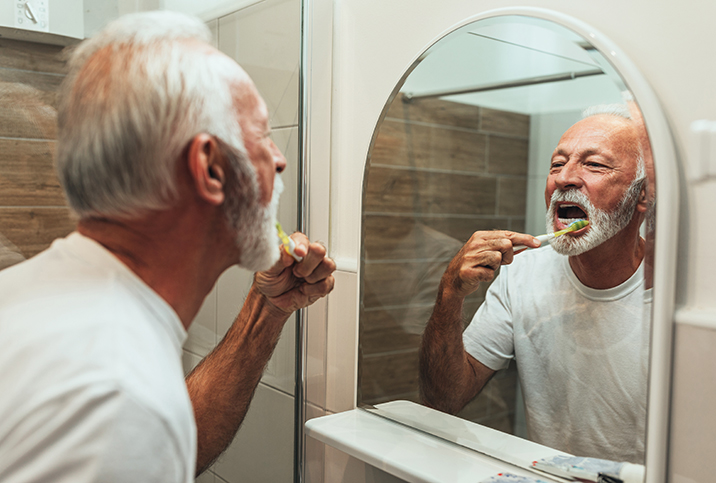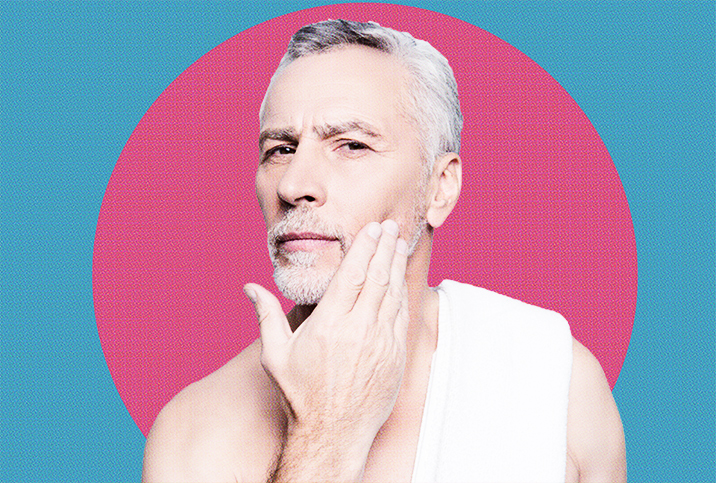Is Alcohol in Mouthwash Bad for You?

We've all been told that to have healthy teeth free of cavities, we must brush twice a day, floss at least once per day and use mouthwash frequently. What if this recommended dental routine does more harm than good?
Many name-brand mouthwashes and rinses contain high percentages of alcohol, used to fight bacteria and combat conditions impacting oral hygiene, such as gingivitis, tartar, plaque and receding gums. However, in recent years experts in the dental industry have been looking at the potential side effects, both long and short term, of alcohol in mouthwash.
RDH Magazine, the national dental hygienist magazine in the U.S., published an article stating the original Listerine formula contains about 27 percent alcohol, and many popular mint-flavored types of mouthwash contain nearly 22 percent alcohol. For comparison, beer contains about 3 to 7 percent alcohol and wine about 12 percent. According to the article, experts claim it is possible that swishing with alcohol-containing mouthwash might trigger a positive breathalyzer test result for 7 to 20 minutes post-use.
Further, a study from 2016 indicated a potential link between the usage of mouthwash containing alcohol and oral cancer.
How do you weigh the pros and cons of a mouth-washing routine?
Dentists recommend alcohol-free mouthwash
Dr. Kit Allen-Waters is an Australian general dentist practicing in Brisbane and runs a blog called TeethFAQ.
"These alcohol-free options are just as effective at killing plaque-causing bacteria as an alcohol-containing mouthwash," Allen-Waters said. "The alcohol contributes to the burning clean and fresh mouthfeel—but [the] other ingredients kill unwanted bacteria. These ingredients are present in alcohol-free mouth rinses, too."
Allen-Waters added, "The risk of long-term use of alcohol-containing mouth rinse is considered by some researchers to be similar to long-term, frequent alcohol use. Just like frequent alcohol use, it can impact the health of the skin in the mouth—with an increased risk of mouth cancers or serious skin conditions."
Dr. Paul Springs is a prosthodontist at Dr. Mondshine and Associates in New York City, and he also warns about potential cancer risks.
"Alcohol is a very effective antibacterial, but it's also a known carcinogen," he said. "People who drink alcohol heavily are at increased risk for oral cancer. One study has shown a slight correlation between daily alcohol rinse and oral cancer as well. But that same study shows if you drink recreationally and use daily alcohol rinse, the risk of oral cancer is double."
Not to mention the other side effects.
"Alcohol is very drying," said Dr. Tiffanie Garrison-Jeter, DMD, a cosmetic general dentist in Nolensville, Tennessee. "A dry mouth is more cavity-prone."
Dr. Amber O'Brien, DMD, a general dentist at the Mango Clinic in Miami, Florida, agreed and added that alcohol-free mouthwash doesn't dry your mouth out or produce the burning sensation mouthwash formulated with alcohol does.
"A mouthwash with alcohol tends to destroy all the bacteria in your mouth, both the good and bad," O'Brien said. "Alcohol-free mouthwash only kills bad bacteria. Considering this, alcohol-free mouthwash is more beneficial for your oral health."
Beyond rinsing
So what is the safest and most effective way to control bad breath? According to Springs, physical methods like brushing are always best in eliminating bad breath and maintaining proper oral hygiene.
"The first line of defense is always a physical disruption of the plaque that grows on teeth by brushing, flossing and blasting it off with oral irrigators. Plaque is a mature multispecies mat of mixed bacteria, viruses and fungi, all of which protect and support one another (a complex biofilm). This is why a chemical rinse alone will never make a serious dent in the plaque in a dysbiotic mouth."
Allen-Waters recommends using a stainless-steel tongue scraper to control bacteria on the tongue that may cause bad breath. And if physical methods of teeth cleaning aren't enough to eliminate foul breath, alcohol-free mouthwash is the safest bet. Garrison-Jeter recommends a fluoridated mouthwash for additional cavity prevention—fluoride is a mineral found in toothpaste that helps protect tooth enamel and reduce the growth of harmful bacteria in the mouth.
A 2007 study of school-age children found mouthwash containing fluoride reduced cavities in users by more than 50 percent compared to children who didn't use mouthwash.
Everything in moderation
Worried the alcohol-formulated mouthwash you've been using is going to give you oral cancer? Dr. Jason Collier, DDS, a dental implant surgeon in Memphis, Tennessee, offered reassurance.
"Overuse or consumption of anything can become toxic—even water. Using mouth rinse once a day is effective and safe for most people," he said. "If you're using it more than once a day, consider alternating between something like Listerine and a nonalcoholic rinse."
A study published in 2020 found there is insufficient data linking oral cancer and using alcohol-formulated mouthwashes independently. However, there may be some evidence of a possible increase when using alcohol-formulated mouthwash alongside other carcinogenic activities, such as smoking or drinking alcohol.
Moderation is key. If you would like to continue using mouthwash with alcohol, do so on occasion. And remember, physical methods of cleansing are best for oral hygiene.

















